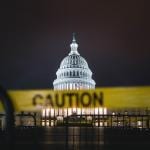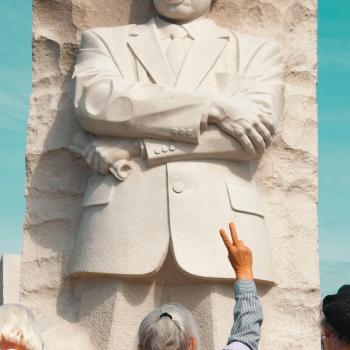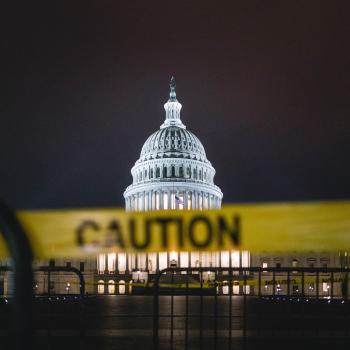What is the President really good at? What catapulted this former TV star and real estate mogul into the world’s most powerful position? What is Donald Trump’s greatest talent, as finally revealed by the events of January 6th??
Opinions vary, and my own response, post-1/6, will come at the end of this post. First, let’s take a look at the findings of a new biography of the philosopher Hannah Arendt to see if we can figure this out.
I take my cue today from a marvelous interview with the author of this new biography, “On Love and Tyranny: The Life and Politics of Hannah Arendt.” Ann Heberlein is a Swedish scholar and author, and the full interview can be found here.
I will be quoting from this interview copiously. And there is much to admire about it. But my focus here is on what it might tell us about the current state of affairs in America, post 1/6. For example, the most famous concept from all of Arendt’s writing is undoubtedly the “banality of evil”:
Heverlein: “This concept is certainly one of the most misunderstood in the history of political philosophy. It is not the evil act that is to be considered as “banal,” nor should the consequences of any evil deed be regarded as banal. It is the motive behind these evil acts that may be seen as banal. Arendt thus questions whether evil intentions and evil motives are always a prerequisite for evil. According to her, there is not always a relationship between these.
“Arendt coined the term in connection with her presence at the trial of one of the highest-echelon SS officers, Adolf Eichmann, who was accused by an Israeli court of crimes against humanity. She observed the trial as a reporter for The New Yorker in Jerusalem in April 1961 and was struck by how ordinary and mundane Eichmann appeared. He did not look at all like the monster you may have imagined. He appeared, as she writes, as “a sad and unimaginative bureaucrat who has just done his job,” neither demonic, nor fanatical.
“Hannah believed that evil deeds often are performed or caused by people who have no evil intent. The sad truth is that evil deeds are often performed by people who have not reflected on the moral dimension of their acts, people who have not taken sides, people who choose “to obey their orders,” as Eichmann stated in his defense.”
Did the protesters at the Capitol on Jan. 6 wake up that morning intent on carrying out the insurrection that transpired? Or did “one thing led to another”? Heberlein suggests here that it is the “motive” that matters most in the thought of Arendt. “Evil deeds often are performed or caused by people who have no evil intent”; this is an important, unanswered question about the disaster last week; and that on some level they were simply obeying orders….
But in my reading of this intervie3w, the point that stood out the most was in the question about how Arendt might have viewed last week’s debacle. Here Heverlein invokes Nietzsche’s idea about ressentiment. It was a concept at the center of one of the best and most useful to me books published in recent years, James Davison Hunter’s magnum opus To Change the World. There, Hunter described ressentiment like this:
- “Ressentiment is grounded in a narrative of injury or, at least, perceived injury; a strong belief that one has been or is being wronged. The root of this is the sense of entitlement a group holds. The entitlement may be to greater respect, greater influence, or perhaps a better lot in life and it may draw from the past or the present; it may be privilege once enjoyed or the belief that present virtue now warrants it. In the end, these benefits have been withheld or taken away or there is a perceived threat that they will be taken away by those now in positions of power” (107)
- “Over time, the perceived injustice becomes central to the person’s and the group’s identity. Understanding themselves to be victimized is not a passive acknowledgment but a belief that can be cultivated. Accounts of atrocity become a crucial subplot of the narrative, evidence that reinforces the sense that they have been or will be wronged or victimized. Cultivating the fear of further injury becomes a strategy for generating solidarity within the group and mobilizing the group to action…Thus, instead of letting go, the sense of injury continues to get deeper” (107-108)
- (these are wonderful descriptions of the rise of QAnon conspiracy theory, by the way)
Now, in the light of Hunter’s analysis, here is what Heberlein says about ressentiment (leading back to my title above):
“It would be very presumptuous of me to speculate on how Hannah Arendt would have interpreted Donald Trump’s four years in power — but I would nevertheless like to highlight some aspects of a more general nature, namely lies and propaganda.
“Propaganda is an indispensable part of the creation of a totalitarian state. “The masses must be won through propaganda,” she writes in “The Origins of Totalitarianism.” The political lie is just as indispensable to motivate the masses.
“President Trump has given ample examples of both. He has been exceptionally good at speaking to what Nietszche called “ressentiment,” that is, a feeling of inferiority and powerlessness, of being forgotten, despised, and invisible.
“The ressentiment creates hatred. Hatred towards those who are considered to be part of some kind of establishment and hatred because of perceived or real historical wrongdoing. All totalitarian movements in history, such as fascism or communism, have addressed that kind of ressentiment, and every kind of totalitarian movement in the future will do the same, regardless of political color. Despite the fact that Trump belongs in every sense of the word to the establishment — he owns economic assets; he enjoys political power and has the capacity to shape the image of our common reality — he has allied himself with the ressentiment-driven fractions of society.
“A dictatorship is not created overnight. A genocide or a civil war does not arise out of thin air. It requires preparation in the form of lies, propaganda, and a conscious division into “us and them,” belonging and non-belonging.”
So, to end this installment of “truth decay”: what is President Trump’s greatest talent? What is he really, really good at?
I would answer like this: Lies, Propaganda, and the fomenting of ressentiment, Nietzsche-style. Why it is that the American church is so unable to recognize this aspect of our Leader speaks to a disorder and a decadence at the very core of evangelicalism.
As Mark Noll put it over 25 years ago, it’s a scandal of the Mind.
And like Prof. Noll, I take no pleasure in writing this; I am, like him, reporting this as a “wounded lover” — yet hoping for recovery. It is for this very reason that I wrote the book, The Spiritual Life of the Mind…











